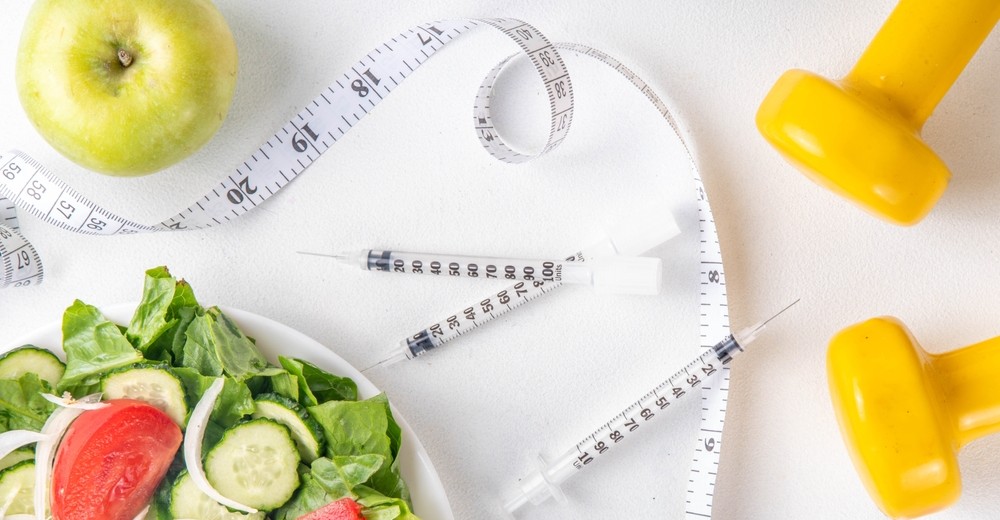When it comes to weight loss, hormones play a crucial role that often goes overlooked. These chemical messengers regulate everything from hunger and metabolism to fat storage and energy levels. If your hormones are out of balance, losing weight can feel like an uphill battle. In this article, we’ll explore the connection between hormones and weight loss, identify key hormones that impact your progress, and provide actionable tips to balance them naturally for sustainable results.
The Role of Hormones in Weight Loss
Hormones are responsible for signaling your body to burn fat, store energy, and regulate appetite. When they’re balanced, your body functions optimally, making weight loss easier. However, factors like stress, poor diet, lack of sleep, and sedentary lifestyles can disrupt hormonal balance, leading to weight gain or difficulty losing weight.
Key Hormones That Affect Weight Loss
1. Insulin
- Role: Regulates blood sugar levels and fat storage.
- Imbalance: High insulin levels can lead to insulin resistance, promoting fat storage and weight gain.
- How to Balance: Eat a balanced diet with complex carbs, fiber, and healthy fats. Avoid sugary and processed foods.
2. Leptin
- Role: Signals fullness and regulates energy balance.
- Imbalance: Leptin resistance can make you feel hungry even when you’ve eaten enough.
- How to Balance: Get enough sleep, reduce stress, and avoid overeating.
3. Ghrelin
- Role: Stimulates hunger and increases appetite.
- Imbalance: High ghrelin levels can lead to overeating and weight gain.
- How to Balance: Eat protein-rich meals, avoid sugary foods, and prioritize sleep.
4. Cortisol
- Role: Manages stress response and regulates metabolism.
- Imbalance: Chronic stress can elevate cortisol levels, leading to fat storage, especially around the abdomen.
- How to Balance: Practice stress-reducing activities like yoga, meditation, or deep breathing.
5. Thyroid Hormones (T3 and T4)
- Role: Regulate metabolism and energy production.
- Imbalance: Hypothyroidism (low thyroid function) can slow metabolism and cause weight gain.
- How to Balance: Ensure adequate intake of iodine, selenium, and zinc. Consult a doctor if you suspect thyroid issues.
6. Estrogen
- Role: Regulates fat storage and metabolism.
- Imbalance: High or low estrogen levels can lead to weight gain, especially in women.
- How to Balance: Eat a diet rich in fiber, cruciferous vegetables, and healthy fats.
7. Testosterone
- Role: Supports muscle growth and fat metabolism.
- Imbalance: Low testosterone levels can reduce muscle mass and increase fat storage.
- How to Balance: Incorporate strength training and ensure adequate sleep and healthy fats in your diet.
How to Balance Hormones Naturally for Weight Loss
1. Eat a Hormone-Balancing Diet
- Focus on Whole Foods: Prioritize fruits, vegetables, lean proteins, whole grains, and healthy fats.
- Include Fiber: Fiber supports gut health and helps regulate insulin and estrogen levels.
- Healthy Fats: Incorporate omega-3 fatty acids from sources like salmon, walnuts, and flaxseeds.
2. Manage Stress
- Chronic stress disrupts cortisol and other hormones.
- Practice mindfulness, meditation, or deep breathing exercises daily.
3. Prioritize Sleep
- Poor sleep disrupts leptin, ghrelin, and cortisol levels.
- Aim for 7-9 hours of quality sleep each night.
4. Exercise Regularly
- Strength training boosts testosterone and growth hormone levels.
- Moderate cardio helps regulate insulin and cortisol.
5. Stay Hydrated
- Dehydration can affect cortisol levels and metabolism.
- Drink at least 8-10 glasses of water daily.
6. Limit Toxins
- Endocrine-disrupting chemicals in plastics, cosmetics, and processed foods can interfere with hormone function.
- Choose natural, organic products whenever possible.
7. Support Gut Health
- A healthy gut microbiome is essential for hormone regulation.
- Include probiotic-rich foods like yogurt, kefir, and sauerkraut in your diet.
Foods That Support Hormonal Balance
- Cruciferous Vegetables: Broccoli, cauliflower, and Brussels sprouts help balance estrogen levels.
- Berries: Rich in antioxidants, they support insulin sensitivity.
- Nuts and Seeds: Provide healthy fats and minerals like magnesium and zinc.
- Leafy Greens: High in fiber and nutrients that support thyroid function.
- Fermented Foods: Promote gut health and hormone regulation.
Common Hormonal Imbalance Symptoms
- Unexplained weight gain or difficulty losing weight
- Fatigue and low energy
- Increased hunger or cravings
- Mood swings or irritability
- Irregular menstrual cycles (in women)
- Sleep disturbances
If you experience these symptoms, consult a healthcare professional for testing and guidance.
The Role of Hormones in Long-Term Weight Management
Balancing your hormones isn’t just about losing weight—it’s about maintaining a healthy weight and overall well-being. By addressing hormonal imbalances, you can improve your metabolism, reduce cravings, and feel more energized every day.
Understanding the connection between hormones and weight loss is key to achieving sustainable results. By adopting a hormone-balancing diet, managing stress, prioritizing sleep, and staying active, you can support your body’s natural processes and make weight loss easier.
Remember, hormonal balance is a journey. Start with small, consistent changes, and over time, you’ll see the benefits in your weight, energy levels, and overall health.



